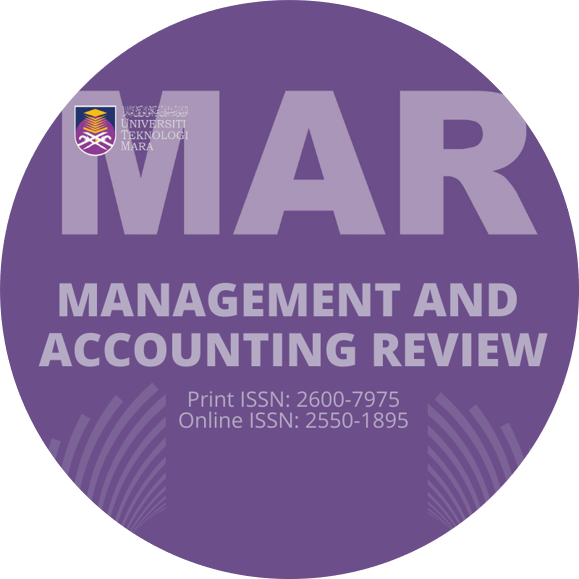Volume 15 No. 1, June 2016
ARTICLE INFO
Article History:
Received: 25 August 2015
Accepted: 16 March 2016
Published: 23 June 2016
MANAGEMENT AND ACCOUNTING REVIEW, VOLUME 15 NO. 1, JUNE 2016
The Impact of Corporate Ownership on Unitary Board Independence: Evidence from Bangladesh
Md Shamimul Hasan1, Normah Omar1, Morrison Handley-Schachler2 and Mohamed A Omran3
1Accounting Research Institute, Universiti Teknologi MARA, Malaysia
2Educator and Researcher, South Queensferry,United Kingdom
3Department of Accounting and MIS,
Gulf University of Science and Technology, Kuwait
1Accounting Research Institute, Universiti Teknologi MARA, Malaysia
2Educator and Researcher, South Queensferry,United Kingdom
3Department of Accounting and MIS,
Gulf University of Science and Technology, Kuwait
ABSTRACT
Board independence is an important corporate governance element and without good governance it is impossible to form a unitary board system. After the crash in Bangladesh in 2011, it becomes a major issue for public listed companies in Bangladesh to follow a unitary system. This study addresses the issue by examining statistical relationship between corporate ownership and board independence. Descriptive statistics, bivariate analysis and multiple regression techniques are applied in analyzing the attitudes of family, public and institutional owners towards board composition, the degree of influence each type of owner has on board and the presence goes beyond board independence. The results show that board are lacking in independence and family ownership has a significant, negative effect on board independence, in which the results indicate that public and institutional ownership have a positive, nonsignificant influence. It is recommended for professionals to be included on board and that nonexecutive directors should be selected by a search committee to ensure that their competency matches the firm needs. It is further recommended that there should be a minimum of two independent directors and that management should be motivated, in line with the positive reinforcement theory. The German or Japanese model (two-tier board) can also be considered. This study also suggests that regulators should rethink how an independent and professional board can be formed when the barrier of concentrated ownership is removed.
Keywords: Corporate governance, board independence, family ownership, corporate ownership, Bangladesh
Keywords: Corporate governance, board independence, family ownership, corporate ownership, Bangladesh





